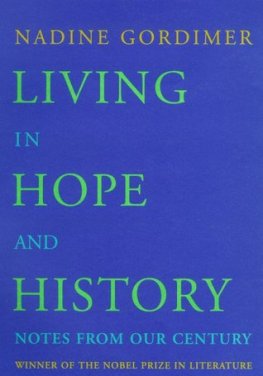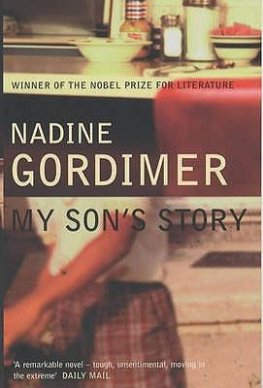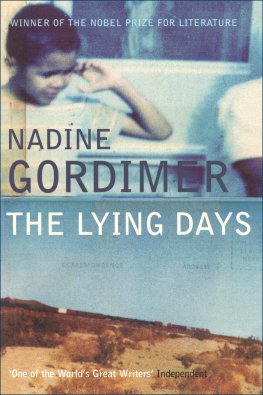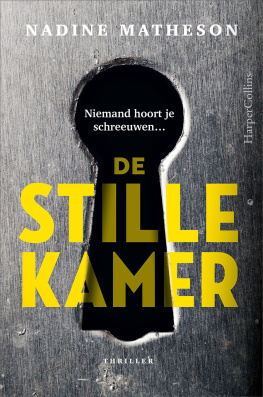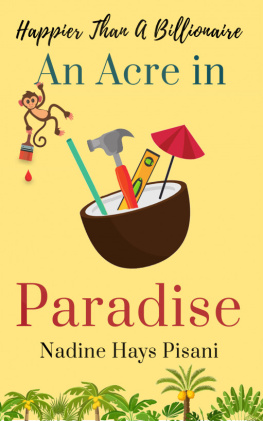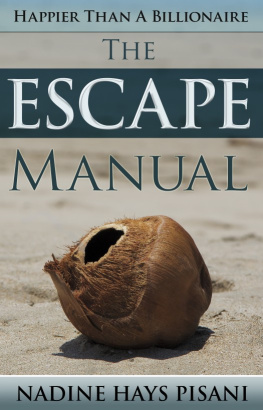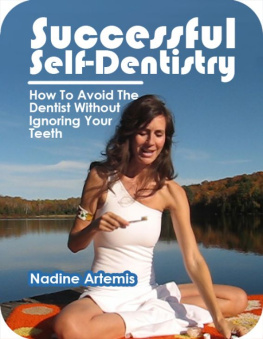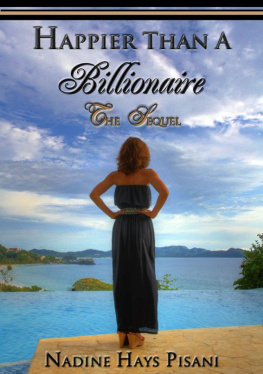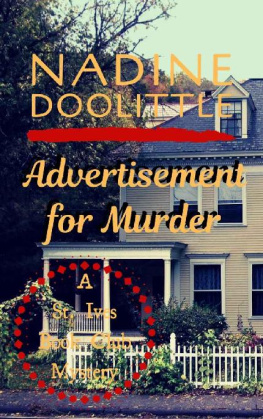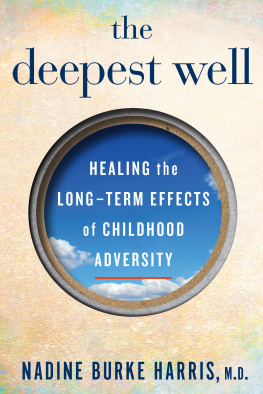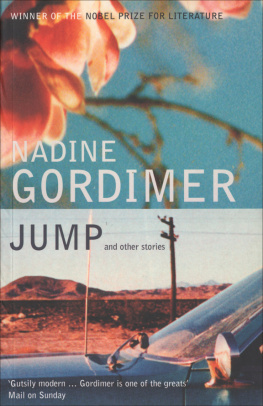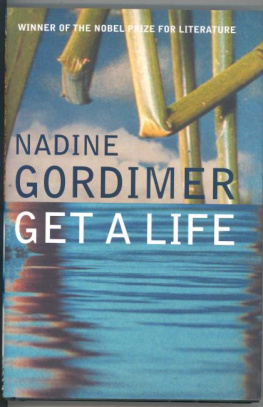Of This Much Im Sure

Copyright 2017 by Nadine Kenney Johnstone
All rights reserved. No part of this publication may be reproduced, distributed, or transmitted in any form or by any means, including photocopying, recording, digital scanning, or other electronic or mechanical methods, without the prior written permission of the publisher, except in the case of brief quotations embodied in critical reviews and certain other noncommercial uses permitted by copyright law. For permission requests, please address She Writes Press.
Published 2017
Printed in the United States of America
ISBN: 978-1-63152-210-9
eISBN: 978-1-63152-211-6
Library of Congress Control Number: 2016954306
For information, address:
She Writes Press
1563 Solano Ave #546
Berkeley, CA 94707
Cover design Julie Metz, Ltd./metzdesign.com
Book design by Stacey Aaronson
She Writes Press is a division of SparkPoint Studio, LLC.
Names and identifying characteristics have been changed to protect the privacy of certain individuals.
For my boys.
Prologue
I never imagined that IVF might kill me.
But as the doctors rush me into emergency surgery, and Jamie whispers I love you like he fears he will never hold me again, a third of my blood volume pumps not through my veins but into my body, poisoning my organs.
I understand that these breaths might be my last.
Just before the anesthesia kicks in, what grips me is the ironythat this quest weve embarked on to create life might be the very thing that ends my own.
I will die young. I will die childless. I will die just when Ive pushed everyone away.
And if I do live to survive, I am acutely aware that my life will forever be categorized as before IVF and after.
Here is the part of the story that Jamie and I always omit from the telling of our traumatic tale. After the egg retrieval, we didnt go straight to our house for me to rest, as directed. Almost twenty eggs had just been extracted from my ovaries and were being inseminated in a petri dish while I recovered. A pair of those fertilized embryos would be inserted into my uterus in three days, and I would be what I had wanted to be for so long: pregnant.
But then we made a stop on the way home from the clinic after the egg retrieval, and I will forever wonder if this pause in our journey changed our fate. It makes me question if I am to blame for the terror I faced that October Tuesday and the weeks, months, years that followed.
What detour could have been so important that it caused us to ignore doctors orders? The pharmacy? The grocery store? No and no. The destination was Orchard HouseLouisa May Alcotts home in Concord, Massachusetts, where she wrote her autobiographical novel, Little Women.
Every Christmas, I used to watch the movie version of the book and pine after the sort of life the March family had in the 1800s. I, too, wanted the warmth of a fireplace, the creak of old wood floors, furniture strewn with handmade quilts, hot cider for sipping. I craved cinnamon Bundt cakes and orange-glazed roasts. I ached to sing carols to the chords of my sisters piano playing.
Instead, we spent the Christmas Eves of my youth in our cold basement that Mom made festive with dollar-store stockings and plastic candy canes. Our windows fogged, not from the heat of a hearth, but from clouds of cigarette smoke. Dinner was South Side Chicago grubItalian beef sandwiches, fried chicken, mostaccioli. In lieu of carols and piano tunes, my drunk uncles clanked bottles of Jager and called each other jag-offs. My prepubescent cousins and I played dress-up, but rather than donning bonnets and lace gowns like the March girls, we stuffed socks into our plaid dresses and smeared our mouths with lipstick. To entertain the family, we belted out made-up songs with lyrics like: Were big-busted women, and we know how to dance.
On Christmas Day, when my sister, Dana, and I watched Little Women, I most enjoyed following Jos quest to become a writer, scenes of her sitting at her attic desk near the frosty window late at night. As she dabbed pen into inkwell and scribbled away, something ignited inside of me. Possibility.
Because writers were nonexistent in our blue-collar Chicago neighborhood, saying I wanted to be one was like saying I wanted to be a princess. But watching Little Women was like getting permission to pursue the impossible.
I spent my childhood evenings scrawling in my diary and poring over books by flashlight. I wrote the title of my first novel in a Book about Me that I filled out in second grade. Under ideal profession, I wrote: Writer, then, My first novel will be called Prisoner of Fate.
Of course, I knew nothing about fate at that ageI wouldnt know for another twenty years. And so, in my opinion, the most horrifying moment in Little Women was not the father being wounded in the Civil War, or the death of young Beth, but when Amy burns all of Jos manuscript pages in the fireplace out of spite. Back when loss was an abstract term, this seemed the absolute worst calamity one could endure.
Like Jo, who pursued her writing career in New York, I imagined that I would go off on my own and chase my dreams in the big city. I always envisioned living on the north side of Chicago after getting my masters, spending my days at coffee shops, sipping caramel lattes and typing away in the glow of my computer screen.
My visions of the future never revealed a man or children, and there was a quote in Little Women that I always identified with: You are the gull, Jo, strong and wild, fond of the storm and the wind, flying far out to sea, and happy all alone.
I saw this as the way of writers. They were too self-involved to tend to others. Plus, life as a mother seemed so much harder than that of a career woman.
How selfless one had to be.
My favorite part of the Little Women movie was the arrival of a different sort of bundlethe pages of Jos novel typeset by the publisher and bound in twine. This, I thought, was the greatest creation one could birth.
I spent my grad school years exactly as I had envisionedworking and pursuing writing in Chicago. During the week, I studied at Columbia College in the South Loop, then I passed the weekends at Panera or Starbucks in a writing frenzy fueled by espresso. It was my utopia.
Until Jamie entered my life.
He was from Massachusetts and we met while we were both on vacation in Florida. Our long-distance relationship began, and my whole world changed.
I moved into my own studio apartment in Chicago where Jamie would stay with me when he visited. I still spent Saturdays at cafs, but now I stared at his face instead of a Word document. When he went back to Boston, my bed felt so empty that my fantasy of living alone surrounded by books in a city high-rise now seemed like the loneliest form of existence.
During that time, I went out for Indian food with an office-mate and gushed about my latest decision to move to Massachusetts for Jamie. Still single in her 50s, my coworker encouraged me to publish before settling down and procreating. Anyone can get pregnant, she said, but not everyone can write a book.
It turns out the first part of her statement wasnt true. Not when the man has had testicular cancer and the chemo has affected the speed of his sperm. Not when the woman has undiagnosed hypothyroidism, hindering ovulation.
At twenty-four, I moved East and Jamie proposed to me. I traded my Poets and Writers magazines for Modern Bride. At the age of twenty-six, we moved to the rural burbs of Massachusetts. Just before I turned twenty-seven, I married Jamie, and at twenty-eight, we started operation pregnancy. What prompted me to choose a life so different from the one I had originally imagined? Maybe it was my innate desire to always pursue lifes next steps. Or maybe it was that family Christmas scene from
Next page

